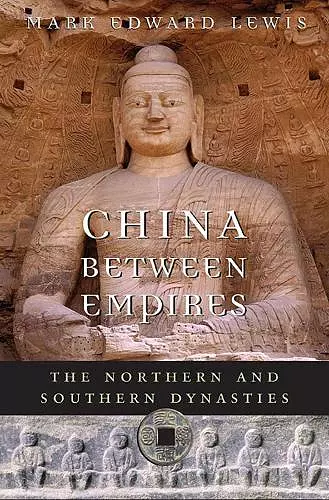China between Empires
The Northern and Southern Dynasties
Mark Edward Lewis author Timothy Brook editor
Format:Paperback
Publisher:Harvard University Press
Published:30th May '11
Should be back in stock very soon

An original, useful, and very timely book, China between Empires is arguably the first single-volume comprehensive treatment for general readers of Chinese history between AD 220 and 589. Lewis writes clearly and with conviction and marshals an impressive array of evidence--historical, religious, technological, literary, and archaeological. It is a remarkable achievement, especially considering the extreme complexity of the period. -- Lothar von Falkenhausen, University of California, Los Angeles
After the collapse of the Han dynasty, China divided along a north-south line. Lewis traces the changes that underlay and resulted from this split in a period that saw China's geographic redefinition, more engagement with the outside world, significant changes to family life, literary and social developments, and the introduction of new religions.
After the collapse of the Han dynasty in the third century CE, China divided along a north-south line. Mark Lewis traces the changes that both underlay and resulted from this split in a period that saw the geographic redefinition of China, more engagement with the outside world, significant changes to family life, developments in the literary and social arenas, and the introduction of new religions.
The Yangzi River valley arose as the rice-producing center of the country. Literature moved beyond the court and capital to depict local culture, and newly emerging social spaces included the garden, temple, salon, and country villa. The growth of self-defined genteel families expanded the notion of the elite, moving it away from the traditional great Han families identified mostly by material wealth. Trailing the rebel movements that toppled the Han, the new faiths of Daoism and Buddhism altered every aspect of life, including the state, kinship structures, and the economy.
By the time China was reunited by the Sui dynasty in 589 ce, the elite had been drawn into the state order, and imperial power had assumed a more transcendent nature. The Chinese were incorporated into a new world system in which they exchanged goods and ideas with states that shared a common Buddhist religion. The centuries between the Han and the Tang thus had a profound and permanent impact on the Chinese world.
An original, useful, and very timely book, China between Empires is arguably the first single-volume comprehensive treatment for general readers of Chinese history between AD 220 and 589. Lewis writes clearly and with conviction and marshals an impressive array of evidence--historical, religious, technological, literary, and archaeological. It is a remarkable achievement, especially considering the extreme complexity of the period. -- Lothar von Falkenhausen, University of California, Los Angeles
The book is wide-ranging in scope and interspersed with interesting ideas. -- V. C. Xiong * Choice *
This series on China, brilliantly overseen by Timothy Brook, is a credit to Harvard University Press. Above all, it encourages us to think of China in different ways. -- Jonathan Mirsky * Literary Review *
- Nominated for John K. Fairbank Prize in East Asian History 2009
- Nominated for James Henry Breasted Prize 2009
ISBN: 9780674060357
Dimensions: 235mm x 156mm x 23mm
Weight: 567g
352 pages